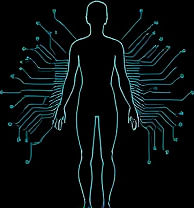Meditation and Its Role in Boosting Cognitive Performance
 by Shanie Goodwin
by Shanie Goodwin
Explore how regular meditation practices can sharpen mental clarity and enhance cognitive abilities. This article covers techniques, benefits, and ways to integrate it with modern wellness tools for better brain health and personal growth.

Meditation offers a straightforward way to improve mental sharpness and overall brain function. Many people turn to this practice for its ability to foster clearer thinking and better focus. In the content of biohacking, meditation stands out as a key method for those seeking to optimize their cognitive abilities.
One primary advantage of meditation involves its impact on attention and memory. Studies show that consistent sessions can lead to noticeable improvements in these areas. For instance, individuals who practice daily often report enhanced concentration during tasks that require sustained effort. This makes cognitive gain more achievable without relying solely on supplements or devices.
To get started, consider basic techniques like mindfulness or focused breathing. Mindfulness involves paying close attention to the present moment, which can help reduce distractions and build mental resilience. Focused breathing, on the other hand, centers on deep, rhythmic inhales and exhales to calm the mind and promote relaxation.
In biohacking circles, combining meditation with wearable technology adds another layer of effectiveness. Devices that track brain activity or heart rate can provide real-time feedback during sessions. This integration allows users to measure progress and adjust their routines for maximum benefit. Wearable technology thus becomes a valuable ally in pursuing cognitive enhancement.
Why Meditation Works for the Brain
The science behind meditation reveals changes in brain structure and function. Regular practice has been linked to increased gray matter in regions associated with learning and memory. This structural change supports long-term brain health and helps ward off age-related decline.
Another aspect is its effect on stress reduction. High stress levels can impair cognitive performance, making it harder to process information or solve problems. By lowering stress through meditation, individuals often experience better emotional regulation and clearer decision-making.
For those interested in nootropics, meditation can complement these substances. While nootropics aim to support brain function through nutrition, meditation provides a non-invasive approach that enhances overall results. Together, they form a comprehensive strategy for personal enhancement.
Practical Tips for Incorporating Meditation
Begin with short sessions to build a habit. Start with just five to ten minutes a day, gradually increasing as comfort grows. Find a quiet space free from interruptions to fully engage in the practice.
Here are some steps to follow:
- Choose a comfortable position, whether sitting or lying down.
- Set a timer to avoid checking the clock.
- Focus on your breath or a simple mantra to maintain attention.
- After the session, reflect on any changes in your mental state.
Tracking your progress is essential. Apps and wearables can log session data, showing patterns over time. This data-driven approach aligns with biohacking principles, turning meditation into a measurable part of health optimization.
Many tech-savvy enthusiasts find that combining meditation with other biohacking tools leads to profound personal enhancement. For example, pairing it with quality sleep and balanced nutrition creates a synergistic effect on cognitive abilities.
Real-World Applications
In everyday life, the benefits extend to professional and personal settings. Improved focus can boost productivity at work, while better memory aids in learning new skills. Athletes and executives alike use meditation to sharpen their performance edges.
Consider the story of someone who integrated meditation into their routine. After a few weeks, they noticed quicker problem-solving and reduced mental fatigue. This personal anecdote highlights how accessible and effective the practice can be.
As part of a broader wellness strategy, meditation encourages self-improvement through simple, repeatable actions. It empowers individuals to take control of their mental state and strive for ongoing growth.
Looking Ahead
The potential of meditation in biohacking continues to grow. With ongoing research, more connections between practice and cognitive benefits emerge. This evolution keeps it relevant for those passionate about self-optimization.
Ultimately, adopting meditation means investing in your own potential. By prioritizing this practice, you pave the way for sharper thinking and a more resilient mind. The journey toward better cognitive performance starts with consistent effort and an open mindset.
